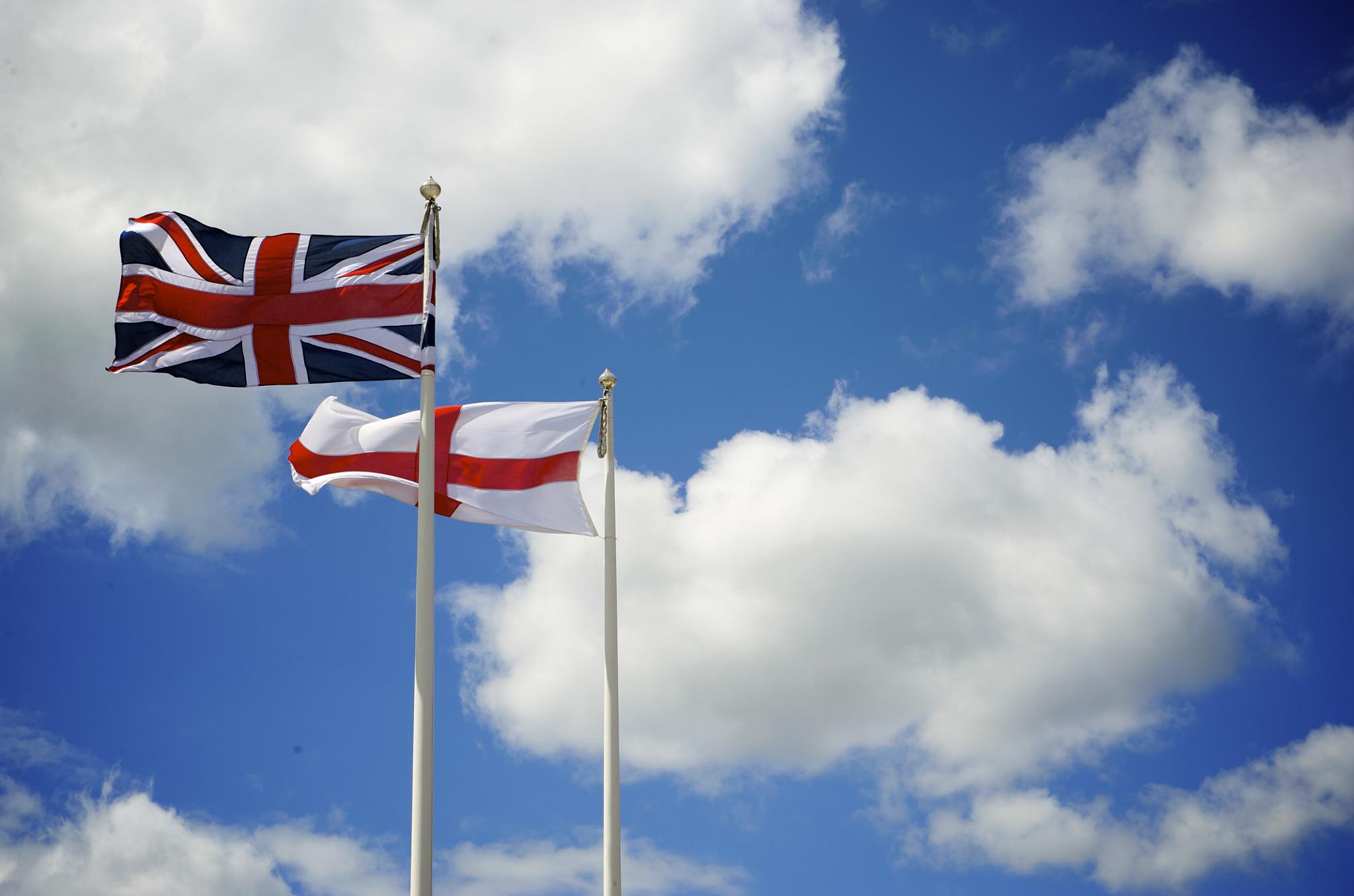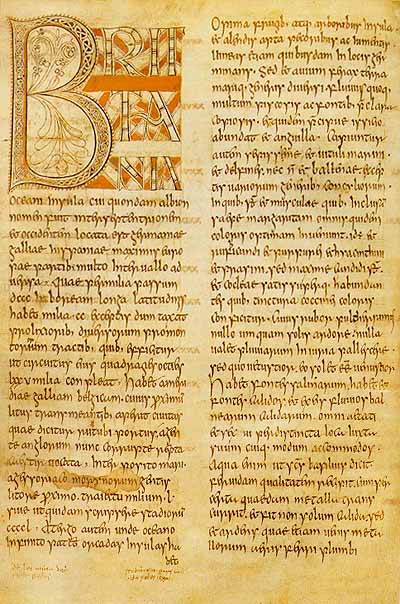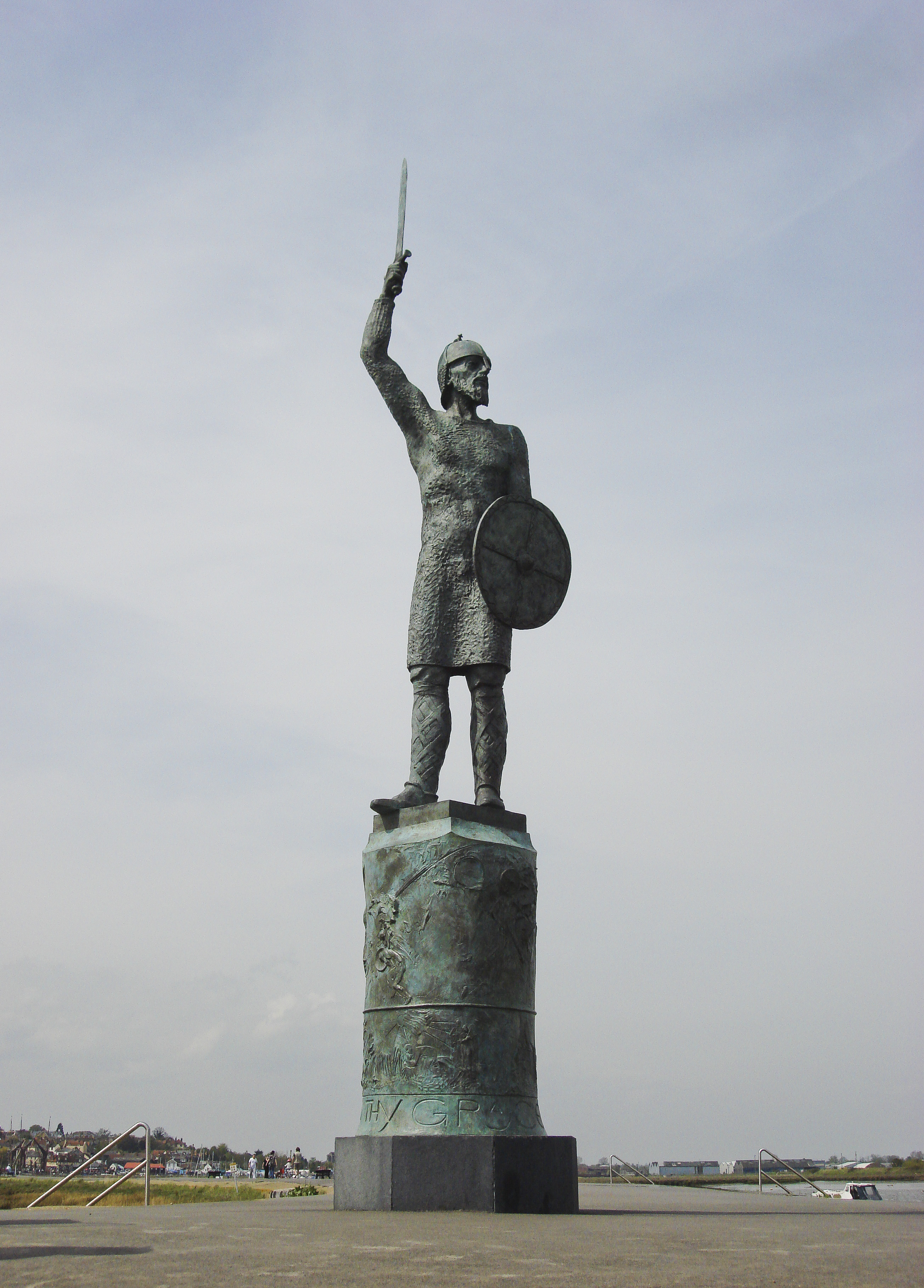|
English Nationalists
English nationalism is a nationalism that asserts that the English are a nation and promotes the cultural unity of English people. In a general sense, it comprises political and social movements and sentiment inspired by a love for English culture, language and history, and a sense of pride in England and the English people. English nationalists often see themselves as predominantly English rather than British. On the political level, some English nationalists have advocated self-government for England such as the English Democrats. This could take the form either of a devolved English parliament within the United Kingdom or the re-establishment of an independent sovereign state of England outside of the United Kingdom. History The history of English nationalism is a contested area of scholarship. The historian Adrian Hastings has written that: "One can find historians to date 'the dawn of English national consciousness' (or some such phrase) in almost every century from ... [...More Info...] [...Related Items...] OR: [Wikipedia] [Google] [Baidu] |
Flag Of England
The flag of England is the national flag of England, a constituent country of the United Kingdom. It is derived from Saint George's Cross (heraldic blazon: ''Argent, a cross gules''). The association of the red cross as an emblem of England can be traced back to the Late Middle Ages when it was gradually, increasingly, used alongside the Royal Banner. It became the only saint's flag permitted to be flown in public as part of the English Reformation and at a similar time became the pre-eminent maritime flag referred to as a white ensign. It was used as a component in the design of the Union Jack in 1606. It has been widely used since the 1990s, specifically at national sporting events, especially during the campaigns of England's national football teams. Origins In 1188 Henry II of England and Philip II of France agreed to go on a crusade, and that Henry would use a white cross and Philip a red cross. Thirteenth-century authorities are unanimous on this reversal to the ... [...More Info...] [...Related Items...] OR: [Wikipedia] [Google] [Baidu] |
Historia Ecclesiastica Gentis Anglorum
The ''Ecclesiastical History of the English People'' ( la, Historia ecclesiastica gentis Anglorum), written by Bede in about AD 731, is a history of the Christian Churches in England, and of England generally; its main focus is on the conflict between the pre-Schism Roman Rite and Celtic Christianity. It was composed in Latin, and is believed to have been completed in 731 when Bede was approximately 59 years old. It is considered one of the most important original references on Anglo-Saxon history, and has played a key role in the development of an English national identity. Overview The ''Historia ecclesiastica gentis Anglorum'', or ''An Ecclesiastical History of the English People'' is Bede's best-known work, completed in about 731. The first of the five books begins with some geographical background and then sketches the history of England, beginning with Julius Caesar's invasion in 55 BC. A brief account of Christianity in Roman Britain, including the martyrdom of St Alb ... [...More Info...] [...Related Items...] OR: [Wikipedia] [Google] [Baidu] |
Byrhtnoth
Byrhtnoth ( ang, Byrhtnoð), Ealdorman of Essex ( 931 - 11 August 991), died at the Battle of Maldon. His name is composed of the Old English ''beorht'' (bright) and ''noþ'' (courage). He is the subject of ''The Battle of Maldon'', an Old English poem, J.R.R. Tolkien's short play in verse, '' The Homecoming of Beorhtnoth, Beorhthelm's Son'', and a modern statue at Maldon. Death in battle His death, while leading the Anglo-Saxon forces against the Vikings in 991, is the subject of the famous Old English poem ''The Battle of Maldon''. As presented there, his decision to allow the Vikings to move to a better position was heroic but fatal. He was said to stand well over six feet in height, and was around the age of sixty years at the Battle of Maldon, with "swan-white hair". Although it is believed that he fell early in the battle, some say that it took three men to kill him, one of them almost severing Byrhtnoth's arm in the process. He had previously had several military succe ... [...More Info...] [...Related Items...] OR: [Wikipedia] [Google] [Baidu] |
Viking
Vikings ; non, víkingr is the modern name given to seafaring people originally from Scandinavia (present-day Denmark, Norway and Sweden), who from the late 8th to the late 11th centuries raided, pirated, traded and settled throughout parts of Europe.Roesdahl, pp. 9–22. They also voyaged as far as the Mediterranean Sea, Mediterranean, North Africa, Volga Bulgaria, the Middle East, and Greenland, North America. In some of the countries they raided and settled in, this period is popularly known as the Viking Age, and the term "Viking" also commonly includes the inhabitants of the Scandinavian homelands as a collective whole. The Vikings had a profound impact on the Early Middle Ages, early medieval history of Scandinavia, the History of the British Isles, British Isles, France in the Middle Ages, France, Viking Age in Estonia, Estonia, and Kievan Rus'. Expert sailors and navigators aboard their characteristic longships, Vikings established Norse settlem ... [...More Info...] [...Related Items...] OR: [Wikipedia] [Google] [Baidu] |
Anglo-Saxon
The Anglo-Saxons were a Cultural identity, cultural group who inhabited England in the Early Middle Ages. They traced their origins to settlers who came to Britain from mainland Europe in the 5th century. However, the ethnogenesis of the Anglo-Saxons happened within Britain, and the identity was not merely imported. Anglo-Saxon identity arose from interaction between incoming groups from several Germanic peoples, Germanic tribes, both amongst themselves, and with Celtic Britons, indigenous Britons. Many of the natives, over time, adopted Anglo-Saxon culture and language and were assimilated. The Anglo-Saxons established the concept, and the Kingdom of England, Kingdom, of England, and though the modern English language owes somewhat less than 26% of its words to their language, this includes the vast majority of words used in everyday speech. Historically, the Anglo-Saxon period denotes the period in Britain between about 450 and 1066, after Anglo-Saxon settlement of Britain, th ... [...More Info...] [...Related Items...] OR: [Wikipedia] [Google] [Baidu] |
The Battle Of Maldon
"The Battle of Maldon" is the name given to an Old English poem of uncertain date celebrating the real Battle of Maldon of 991, at which an Anglo-Saxon army failed to repulse a Viking raid. Only 325 lines of the poem are extant; both the beginning and the ending are lost. The poem The poem is told entirely from the perspective of the Anglo-Saxons, and names many individuals that Mitchell and Robinson''A Guide to Old English'', 5th ed. by Bruce Mitchell and Fred C. Robinson, Blackwell, 1999 reprint believe were real Englishmen. Mitchell and Robinson conjecture that the lost opening of the poem must have related how Byrhtnoth, an Anglo-Saxon ealdorman, hearing of the Viking raid, raised his troops and led them to the shore. The poem as we have it begins with the Anglo-Saxon warriors dismounting to prepare for battle. A Viking force is encamped on an island that can be reached by a causeway. A Viking messenger offers Byrhtnoth peace if he will consent to pay tribute. Byrhtnoth a ... [...More Info...] [...Related Items...] OR: [Wikipedia] [Google] [Baidu] |
English Nation
The English people are an ethnic group and nation native to England, who speak the English language, a West Germanic language, and share a common history and culture. The English identity is of Anglo-Saxon origin, when they were known in Old English as the ('race or tribe of the Angles'). Their ethnonym is derived from the Angles, one of the Germanic peoples who migrated to Great Britain around the 5th century AD. The English largely descend from two main historical population groups the West Germanic tribes (the Angles, Saxons, Jutes and Frisians) who settled in southern Britain following the withdrawal of the Romans, and the partially Romanised Celtic Britons already living there.Martiniano, R., Caffell, A., Holst, M. et al. Genomic signals of migration and continuity in Britain before the Anglo-Saxons. Nat Commun 7, 10326 (2016). https://doi.org/10.1038/ncomms10326 Collectively known as the Anglo-Saxons, they founded what was to become the Kingdom of England by the ea ... [...More Info...] [...Related Items...] OR: [Wikipedia] [Google] [Baidu] |
Picts
The Picts were a group of peoples who lived in what is now northern and eastern Scotland (north of the Firth of Forth) during Late Antiquity and the Early Middle Ages. Where they lived and what their culture was like can be inferred from early medieval texts and Pictish stones. Their Latin name, , appears in written records from the 3rd to the 10th century. Early medieval sources report the existence of a distinct Pictish language, which today is believed to have been an Insular Celtic language, closely related to the Common Brittonic, Brittonic spoken by the Celtic Britons, Britons who lived to the south. Picts are assumed to have been the descendants of the Caledonians, Caledonii and other British Iron Age, Iron Age tribes that were mentioned by Roman historians or on the Ptolemy's world map, world map of Ptolemy. The Pictish kingdom, often called Pictland in modern sources, achieved a large degree of political unity in the late 7th and early 8th centuries through the expa ... [...More Info...] [...Related Items...] OR: [Wikipedia] [Google] [Baidu] |
Scoti
''Scoti'' or ''Scotti'' is a Latin name for the Gaels,Duffy, Seán. ''Medieval Ireland: An Encyclopedia''. Routledge, 2005. p.698 first attested in the late 3rd century. At first it referred to all Gaels, whether in Ireland or Great Britain, but later it came to refer only to Gaels in northern Britain. The kingdom to which their culture spread became known as ''Scotia'' or Scotland, and eventually all its inhabitants came to be known as Scots. History An early use of the word can be found in the ''Nomina Provinciarum Omnium'' (Names of All the Provinces), which dates to about AD 312. This is a short list of the names and provinces of the Roman Empire. At the end of this list is a brief list of tribes deemed to be a growing threat to the Empire, which included the ''Scoti'', as a new term for the Irish. There is also a reference to the word in St Prosper's chronicle of AD 431 where he describes Pope Celestine sending St Palladius to Ireland to preach "''ad Scotti in Christu ... [...More Info...] [...Related Items...] OR: [Wikipedia] [Google] [Baidu] |
Britons (historical)
The Britons ( *''Pritanī'', la, Britanni), also known as Celtic Britons or Ancient Britons, were people of Celtic language and culture who inhabited Great Britain from at least the British Iron Age and into the Middle Ages, at which point they diverged into the Welsh, Cornish and Bretons (among others). They spoke the Common Brittonic language, the ancestor of the modern Brittonic languages. The earliest written evidence for the Britons is from Greco-Roman writers and dates to the Iron Age.Koch, pp. 291–292. Celtic Britain was made up of many tribes and kingdoms, associated with various hillforts. The Britons followed an Ancient Celtic religion overseen by druids. Some of the southern tribes had strong links with mainland Europe, especially Gaul and Belgica, and minted their own coins. The Roman Empire conquered most of Britain in the 1st century, creating the province of Britannia. The Romans invaded northern Britain, but the Britons and Caledonians in the north ... [...More Info...] [...Related Items...] OR: [Wikipedia] [Google] [Baidu] |
Jutes
The Jutes (), Iuti, or Iutæ ( da, Jyder, non, Jótar, ang, Ēotas) were one of the Germanic tribes who settled in Great Britain after the departure of the Romans. According to Bede, they were one of the three most powerful Germanic nations, along with the Angles and the Saxons: There is no consensus amongst historians of the origins on the Jutes. However, there is some archaeological evidence to support a theory that they originated from the eponymous Jutland Peninsula (then called ''Iutum'' in Latin) and to have populated parts of the North Frisian coast. Based on contemporary sources, it appears that they were a tribe of admixed Gutones, Cimbri, Teutons and Charudes, also called ''Eudoses'', ''Eotenas'', ''Iutae'' and ''Euthiones''. The Jutes invaded and settled in southern Britain in the later fifth century during the Migration Period, as part of a larger wave of Germanic settlement into Britain. Settlement in southern Britain During the period after the Ro ... [...More Info...] [...Related Items...] OR: [Wikipedia] [Google] [Baidu] |








